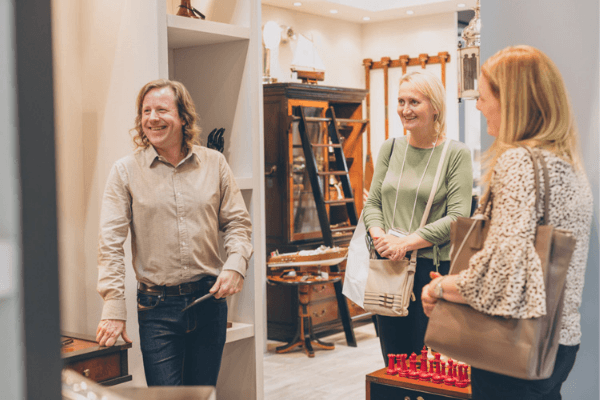Encouraging your Customers to Make an Impulse Buy
)
Thirty years ago, the majority of products consumers bought were planned in advance. Now that mobile shopping is so mainstream, a lot of the products consumer’s purchase are an impulse buy.
Browsing online can be done from anywhere, so consumers are spending their spare time searching brands online. A study done by Google showed that 81% of mobile purchases were made because of spontaneity. The consumer was not setting out to buy anything, but something caught their eye during their aimless browsing.
It’s not just online that retail consumers are stumbling across their impulse buys. When consumers go in store they often make unplanned purchases because something reminds them they may need something, or something they weren’t looking for seems appealing. Impulsive, spontaneous purchases usually don’t regard costs or consequences, so it is something retailers should be taking advantage of.

Encouraging Spontaneous Shopping
1. Add-on Purchases and Product Placement: Product placement in retail stores should be well thought out to remind the consumer that certain products go well together. For example, if consumers are going in store to look for a new pair of shoes, they may purchase a shoe spray as an impulse buy. Shop assistants should also ask the customers if they would like to try X product because it goes well with Y.
2. Convenience: The less time consumers have to think about a purchase decision, the less likely they are to get cold feet. Because of this, retailers should try and keep their queues as small as possible. Placing the products that they think their customers would impulse buy near the counter is also a good way to make things super convenient. If you’re an online retailer, make it really simple and quick for your consumers to purchase before they can think too much into it.
3. Sales and Discounts: Having sales, or discounting items, is another way to get your consumers to buy spontaneously. If there are certain products that you are finding it hard to get rid of, you may want to think about pushing them on your customers using an impulse buy price point.
4. Customer Service: How you treat your customers can go a long way with impulsive buyers. Spontaneous buying is a lot more likely to happen if your customer is feeling positive. Make them feel special and give them attention, but try not to be too pushy, know when they want their own space.

5. Shopping Experience: The longer your customers stay in your retail store, the more likely they will be to spend more money. Create an exciting buying experience that will keep your customers entertained so they won’t want to leave. This can be as simple as providing water and a seat, or as complex as setting up an inhouse nail salon or hairdressers.
Looking for more retail insights and industry trends? Visit Autumn Fair, our September show, and take part in the free workshops and seminars.

)
)
)
)
)
)
)
)
)
)
)
)
.jpg.png/fit-in/500x500/filters:no_upscale())
)
)
)
)
)
)
)
)
)
)
)
)
)
)
)
)
)
)
)
)
)
)
)
)
)
)
)